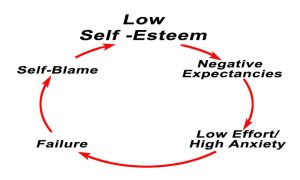Contents
- 1 What Is Self-Sabotaging Behavior?
- 2 Signs Of self-sabotaging Behavior
- 3 How To Overcome Self-Sabotaging Behavior?
- 3.1 1. Learn more about self-sabotage
- 3.2 2. Strengthen your sense of self-worth
- 3.3 3. Face down fear head-on
- 3.4 4. Take a break from your inner critic
- 3.5 5. Find a support network
- 3.6 6. Act “as if”
- 3.7 7. Practice mindfulness meditation
- 3.8 8. Stop beating yourself up
- 3.9 9. Identify your core values
- 3.10 10. Concentrate on what you can change
- 3.11 11. Stay away from people who bring you down
- 3.12 12. Find a healthy outlet for your emotions
- 3.13 13. Focus on the positive things
- 3.14 14. Don’t worry too much about other people
- 3.15 15. Set realistic goals for yourself
- 3.16 16. Be grateful
- 3.17 17. Try to only take on one goal at a time
- 3.18 18. Do things that make you happy every day
- 3.19 19. Set reasonable boundaries for yourself
- 3.20 20. Remember that everyone makes mistakes sometimes
- 3.21 21. Stop taking on other people’s problems as your own
- 3.22 22. Don’t be afraid to ask for help
- 3.23 23. Be patient with yourself when you’re learning new things
- 3.24 24. Understand that everyone has flaws
- 3.25 25. Don’t get too emotionally invested in your plans
- 3.26 26. Learn to be productive
- 3.27 27. Don’t be afraid to change your opinion
- 3.28 28. Don’t take other people’s opinions too personally
- 3.29 29. Don’t dwell on the past
- 3.30 30. Don’t let yourself be defined by your problems
- 4 Conclusion
- 5 A Word From Therapy Mantra
What Is Self-Sabotaging Behavior?

We all know that feeling. That nagging voice in the back of your head that tells you you’re not good enough, that you can’t do it, that you’re better off staying in bed. That’s self-sabotaging behavior, and it can be very harmful to your mental health and your overall success. Learn more about this behavior and how to overcome it!
Self-sabotaging behavior is any type of behavior that undermines our success or goals. It can be anything from procrastinating on a project to sabotaging our relationships to eating unhealthy foods. Basically, any behavior that keeps us from reaching our full potential can be considered self-sabotaging.
One of the main dangers of self-sabotaging behavior is that it can keep us stuck in a cycle of unhappiness and dissatisfaction. We may feel like we’re not good enough or that we can’t achieve our goals, so we sabotage our own efforts. This can lead to feelings of hopelessness and despair, and we may start to believe that we’re just not capable of being successful.
Signs Of self-sabotaging Behavior

Self-sabotaging behavior can be tricky to identify, especially if we’re not aware of what to look for. However, there are a few common signs that can indicate that we’re engaging in self-sabotaging activities.
Some of the most common signs of self-sabotage include:
- Procrastination – Putting off important tasks or projects can be a sign that we’re not confident in our abilities or that we don’t believe we can succeed.
- Negative self-talk – Constantly putting ourselves down or having negative thoughts about ourselves can be a sign that we don’t believe in our own abilities.
- Sabotaging relationships – If we’re always finding ways to end relationships or to push people away, it could be because we’re struggling with feelings of inadequacy and/or self-hatred.
- Imperfect behavior – If we feel like we can’t even control our own behaviors and actions, it might be a sign that we think we’re not capable of reaching our goals. For example, if you can’t stop abusing drugs or alcohol, it may be a sign that you don’t believe in your ability to achieve sobriety.
- A lack of self-care – Not valuing yourself enough to take care of yourself physically and emotionally is another sign that you’re not satisfied with who you are.
How To Overcome Self-Sabotaging Behavior?

Although we all willingly or unwillingly do some self-sabotaging. However, you can overcome such harmful behavior by learning these tips-
1. Learn more about self-sabotage
The first step to overcoming it is understanding the behavior itself. Look for common signs of self-sabotage, including procrastination, addictive behaviors, and poor motivation level. Once you learn to identify the behavior, you can take steps to overcome it.
2. Strengthen your sense of self-worth
Remember that everyone has the ability to be successful if they set their mind to it! Remind yourself of all your positive attributes and qualities, and remember how much more there is in life than just work or career goals. Recognize the value of your relationships and the people you care about.
3. Face down fear head-on
The most common form of self-sabotage comes from a fear of failure or success. Many people don’t want to achieve their goals because they’re afraid that they may find out that they aren’t as talented as they think, or alternatively, that if they do achieve success, they won’t know how to handle it.
4. Take a break from your inner critic
We all have a voice in our heads that tells us we’re not good enough, but self-criticism is not helpful and can be extremely harmful to overall mental health and wellness. Instead of constantly putting yourself down, try using a daily affirmation to boost your mood and remind yourself of your positive qualities.
5. Find a support network
When we embrace self-sabotage, it’s often because we don’t have any other way to express our feelings or deal with challenges in our lives. We may feel alone and as if there is no one who understands us or who we can reach out to. Make sure to foster your existing relationships and take the time to meet other people in your community who share similar interests.
6. Act “as if”
Often, our lack of motivation comes from feeling like there’s no point in trying. We feel powerless and think that our efforts will never pay off. This can be overcome by actually trying- not for the sake of succeeding, but just to see what will happen. If you act “as if” you believe in yourself and that your efforts matter, eventually that will become a self-fulfilling prophecy.
7. Practice mindfulness meditation

Mindfulness is all about being in the moment and observing what’s going on in your life. When we become consumed by negative thoughts, it can be helpful to take a step back and detach from them for a while. Mindfulness meditation is a great way to achieve this state of mindfulness- when you’re deeply concentrating on the present moment, it becomes easier to let go of self-defeating thoughts.
8. Stop beating yourself up
We’re all guilty of it at some point, but when you constantly criticize yourself, it becomes extremely difficult to take positive steps in your life. Self-forgiveness is the first step; forgive yourself for past mistakes and poor choices in your life. When you can be kind to yourself, it is much easier to be compassionate towards others.
9. Identify your core values
After forgiving yourself for your past, try identifying the most important things you want to achieve in life. Write about these goals, and review them every day before you go to sleep so they can “imprint” on your subconscious mind throughout the night. You’ll be better able to focus on them and achieve them when you aren’t constantly distracted by self-defeating thoughts.
10. Concentrate on what you can change
Concentrate on what you can change, rather than what you can’t. Self-sabotage is a constant struggle with the fact that there are some things in life we just cannot control, whether it’s other people’s opinions, the weather, or our own physiology. Most often, when we are emotionally invested in trying to change these things, we are actually just wasting time and energy that would be better spent working on the things that are in our power.
11. Stay away from people who bring you down

Everyone has friends or family members who they know will bring them down whenever they hang out, yet we still choose to spend time with those people anyway. If you have a friend or family member who constantly criticizes you and puts you down, stop spending time with them as much as possible so that your self-esteem won’t be affected by their negativity.
12. Find a healthy outlet for your emotions
When you feel angry or sad about something, it’s understandable that you want to talk about it with someone else. However, sometimes other people are not the best listeners and will only bring you down further if they are involved in your problems. Explore different physical activities to help deal with stress, such as yoga or tai chi.
13. Focus on the positive things
Focus on the positive things in your life and what you have to be thankful for. This isn’t about ignoring the negative parts of your life, it’s about taking a step back and realizing that even when things are going wrong, there is still a lot to be happy about. When you focus on what’s good in your life, it becomes much easier to ignore things that are going wrong.
14. Don’t worry too much about other people
14. Don’t worry too much about what other people think of you. This is a hard one for many people- we all want to have friends and be liked by the people in our community, but when we spend so much time worrying about this, it can sometimes become a self-defeating spiral. Think about the things that are important to you, and recognize that your happiness is more important than what other people think of you.
15. Set realistic goals for yourself
If you set specific, challenging goals for yourself but fail to achieve them, it can be extremely demotivating. In order to avoid this, it’s important to set realistic goals that are within your means.
16. Be grateful

Be grateful for the things you have now, rather than dwelling on what you don’t have. This can be difficult when you feel like you deserve more in life- after all, who doesn’t want more? However, constantly thinking about how much better your life could be if you had a different job or more money can make you feel worse about your life as it currently is. Instead, remind yourself about everything you already have and appreciate those things as much as possible.
17. Try to only take on one goal at a time
If your goals are too unrealistic, it’s easy to become overwhelmed and discouraged by the amount of work it will take to reach them. Before taking on a new goal, make sure you’ve achieved the goals you set out for yourself previously and that those goals are as realistic as possible.
18. Do things that make you happy every day
It’s easy to get caught up in the daily duties of life and forget to do the things you love, but it’s important to set time aside for these activities so that you can remain happy and stress-free. Doing something enjoyable every day takes very little time or effort, but can be extremely rewarding.
19. Set reasonable boundaries for yourself
This means not doing more than what is reasonably expected of you at work or at home, but it also means not being too hard on yourself if you make a mistake. By setting boundaries for yourself and recognizing your limits, you won’t feel so overwhelmed when things don’t go exactly as planned.
20. Remember that everyone makes mistakes sometimes
Whether it’s forgetting to call your mother on her birthday or ruining an important presentation at work, it’s understandable that these things cause you to feel guilty. However, if you can remember that everyone makes mistakes sometimes and forgive yourself for the mistakes you’ve made in the past, your guilt will dissipate over time.
21. Stop taking on other people’s problems as your own
This is especially difficult when you’re a compassionate and empathetic person, but it’s important to not let other people rely on you too heavily. If you find yourself constantly helping your friends with their problems, try setting boundaries for yourself so that you’re not putting the weight of the world on your own shoulders.
22. Don’t be afraid to ask for help

Humans are inherently social creatures and we all rely on the help of others in one way or another when we’re in a bind, but it can be difficult to ask for that help. If you don’t feel like you have anyone in your life who can help you when you need it, reach out to community resources such as the police or local hospitals.
23. Be patient with yourself when you’re learning new things
It’s easy to become frustrated with yourself when you feel like you’re not achieving your goals fast enough, but it’s important to have realistic expectations of yourself. Remind yourself that nobody learns how to do something perfectly the first time they try, and give yourself permission to make mistakes.
24. Understand that everyone has flaws
This is particularly difficult when you’re constantly comparing yourself to others, but it’s important to remember that nobody in the world is perfect and that everybody makes mistakes sometimes. The more you can remind yourself that every person has their own separate strengths and weaknesses, the less likely you will be to judge yourself or other people harshly.
25. Don’t get too emotionally invested in your plans
Whether it’s planning a trip around the world or starting up your own business, it’s important not to become too attached to these ideas too quickly. Remembering that nothing ever goes exactly as planned can protect you against getting too upset if your trip gets canceled or your business fails to take off.
26. Learn to be productive
Find a productive way to deal with negative feelings about yourself. This includes feeling guilty about your mistakes, getting frustrated with yourself for not being as successful as other people, and worrying that you’re not as good at things as you used to be. If these thoughts are causing you to become immobilized and stop making an effort, try distracting yourself by spending time with friends or trying a new and interesting activity.
27. Don’t be afraid to change your opinion

Don’t be afraid to change your opinion about someone if they do something nice for you or display different behavior than what you expected from them. It can be easy to stereotype people into being “good” or “bad,” but it’s important not to assume that people are going to be the same all the time. The more you can let go of your expectations about how people should behave, the easier it will be for you to accept and appreciate them for who they actually are.
28. Don’t take other people’s opinions too personally
This is especially important when you’re dealing with people who aren’t aware that their words might cause you pain or distress. For example, if somebody says something critical about the way you dress and it hurts your feelings, remind yourself that they’ve probably said things like this to other people before and that they don’t really mean anything by it.
29. Don’t dwell on the past
Everybody has made mistakes in their past and experienced things that they wish had never happened, but brooding on these experiences can only hurt you by stopping you from making new and better memories. The more time you can spend thinking about how to make yourself happy in the future instead of mining the past for regrets, the more content you will be with your life today.
30. Don’t let yourself be defined by your problems
Everybody has issues in their lives, but the fact that you have some doesn’t make you any less lovable or worthwhile than anybody else. Remind yourself of this every day and try to focus on improving the good things about yourself instead of fixating on the negative things.
Conclusion
Self-sabotaging behavior is when an individual engages in a self-defeating activity, which leaves them feeling frustrated or angry. There are many ways people can self sabotage themselves including procrastinating on important tasks, thinking negative thoughts, and putting things off until the very last minute. Learning how to stop this type of behavior before it starts will help you reach your goals faster than if you continue with these habits. In our next blog post, we’ll be discussing more how to overcome some common forms of self-sabotage so stay tuned!
A Word From Therapy Mantra
Your mental health — Your psychological, emotional, and social well-being — has an impact on every aspect of your life. Positive mental health essentially allows you to effectively deal with life’s everyday challenges.
At TherapyMantra, we have a team of therapists who provide affordable online therapy to assist you with issues such as depression, anxiety, stress, workplace Issues, addiction, relationship, OCD, LGBTQ, and PTSD. You can book a free therapy or download our free Android or iOS app.


